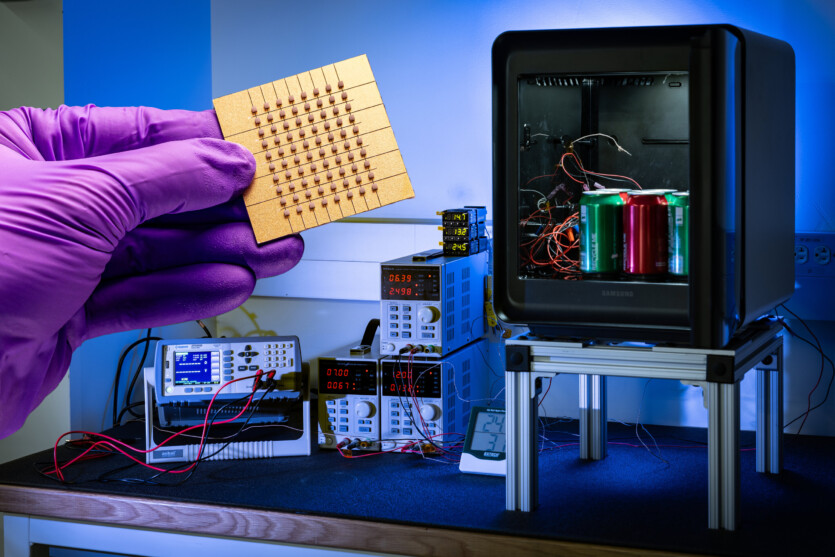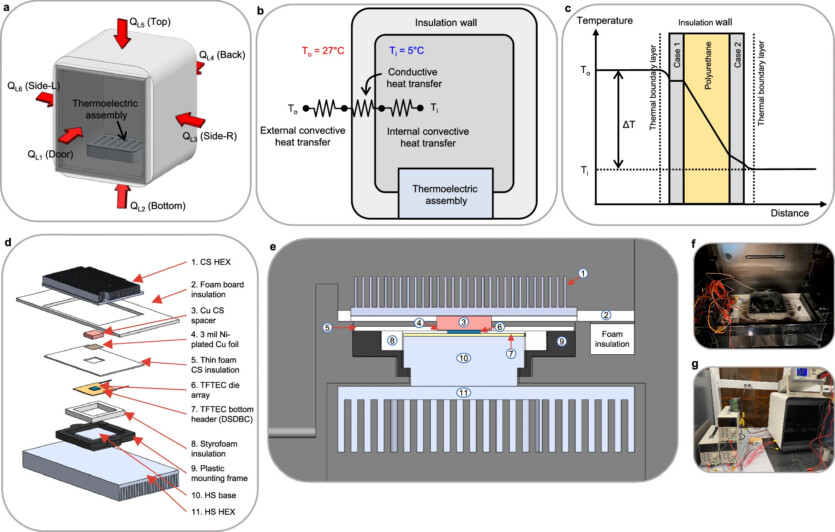
Scientists from the Laboratory of Applied Physics of the University Johns Hopkins has developed an innovative cooling technology due to solid-state thermoelectric cells.
According to the developers, their technology based on solid-state nanofilms, called CHESS, is twice as efficient as previous similar developments using bulk thermoelectric materials and should become an alternative to cooling with the help of compressor units.
Despite the fact that compressor systems that use refrigerants are pumped through coils for heat transfer have proven to be effective, but they remain large, consume a significant amount of energy and use chemicals that are harmful to the environment. Thus, thermoelectric cooling, where electrons act as a coolant, moving heat through specialized semiconductor materials, looks more promising.
Previous attempts to create of a productive system thermoelectric cooling failed because they used large-sized materials that would have to meet the needs of modern refrigeration systems on the market. However, the efficiency was low and the heat pump capacity was insufficient.
Researchers at the Applied Physics Laboratory in Maryland have used nanotechnology to create Controlled Hierarchically Engineered Superlattice Structures (CHESS), creating ultra-thin nanofilms for cooling systems.

The researchers compared refrigeration modules using large-size thermoelectric materials with systems using CHESS nanofilms. Based on the results of standard tests of refrigeration systems, it turned out that nanofilms achieve a 100% increase in efficiency compared to traditional analogues when operating at room temperature.
The developers also claim that refrigeration modules, made with the use of materials CHESS, will be 75% more efficient overall, and fully integrated cooling systems will provide a 70% efficiency increase. During the experiments, each operating refrigeration unit was cooled using only 0.003 cubic centimeters of feedstock, which is roughly the size of a grain of sand.
«For the production of CHESS materials, we used the method of chemical vapor deposition of organometallic compounds. This thin-film technology has the potential to evolve from powering small refrigeration systems to supporting large HVAC systems in buildings, just as lithium-ion batteries have been scaled up to power devices such as mobile phones and electric cars», — the researchers emphasize.
In addition, according to the developers, devices based on materials CHESS is capable of converting temperature differences into useful energy. This makes it possible to approach scalable energy harvesting technologies for electronic devices and even spacecraft.
Sony has shown «filling» PS5 Pro — with a liquid metal cooling system
The results of the study are published in the journal Nature
Source: TechxXplore

Spelling error report
The following text will be sent to our editors: